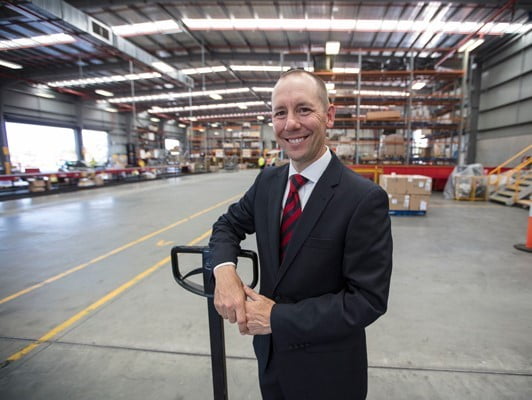The Digital Transformation Agency will remain an independent agency but has been moved under the remit of the new Services Australia department, a rebadged Department of Human Services.
The Administrative Arrangement Orders unveiled last week handed responsibilities for whole-of-government ICT and procurement to Services Australia – the renamed Department of Human Services.
This appeared to also shift the DTA into the newly named department, after previously sitting within Prime Minister and Cabinet. But it took nearly a week to confirm how the agency tasked with whole-of-government IT advice and policy would operate going forward.

The government has now confirmed that the DTA would remain an independent agency with its own staffing, accountability and reporting, but would now sit under Services Australia and report to new Government Services minister Stuart Robert.
“The Digital Transformation Agency remains an executive agency under Services Australia, reporting to Stuart Robert as Minister for the National Disability Insurance Scheme and Minister for Government Services,” a DHS spokesperson told InnovationAus.com on Tuesday.
Governor-General Peter Cosgrove signed an order handing responsibility for the DTA over to the Minister for Government Services on 29 May.
Former Digital Transformation Office boss Paul Shetler welcomed news that the DTA would remain an independent agency.
“They do still have a core of expertise that needs to remain, and there does need to be a piece of government that has the policy responsibilities and that is looking at governance and policy, and is concerned about things like architectures,” Mr Shetler told InnovationAus.com.
“The important thing is the DTA remaining an independent organisation. It does have its own mission, it has built up a culture and it has done some things successfully.”
Mr Shetler, who was at the helm of the organisation when it was moved to PM&C’s remit, said he was “cautiously optimistic” about the move to Services Australia.
“The problem with PM&C was that they had very little interest in this. Although it’s a prestige place to be, they did not want to be bothered with delivery in the least,” he said.
“I don’t think it helped them to be there. When we went into PM&C it didn’t help us, all it really did was paint a target on our back,” he said.
“I imagine the idea of putting it inside of Services Australia is to strengthen their ability, given the number of services in Services Australia. I can see how it could be a good thing, but I can also see how that could be a dangerous thing – they could be swamped.”
“But there’s less of a chance of them being swamped if they’re an independent agency. If they were just taken apart and ripped into pieces and thrown throughout a rebadged DHS, that would be disastrous.”
It had previously been unclear whether the DTA would continue as an independent agency or have its role and responsibilities subsumed by the new Services Australia department.
The future of the DTA was an intriguing question during the recent election campaign, with Labor having been highly critical of its effectiveness since it was launched under former Prime Minister Malcolm Turnbull.
Labor had been expected to keep the DTA running if it had won the May election, but with significant changes in its operations.
When first announcing the new Services Australia model, Prime Minister Scott Morrison said it would be based on the highly successful Services NSW. But the AAOs last week revealed that it would just be a renamed Human Services department, rather than an independent agency.
“A new Services Australia agency will be established, along the lines of Services NSW, to drive greater efficiencies and integration of government service delivery and making best use of technology and digital applications,” Mr Morrison said.
Services Australia was given responsibility for “whole of government service delivery policy”, “whole of government information and communications technology” and “information and communications technology procurement policy and services”.
The ongoing effectiveness of the DTA will depend on how the government allocates it spending and the level of responsibility handed to the agency, Mr Shetler said.
“Much of this will depend not on which portfolio they sit in but on how the government prioritises what it does, how it prioritise what it spends and how it makes sure it doesn’t do more stupid things and it does more good things,” he said.
“That’s a question of governance, funding and procurement, and fixing those things. If they’re serious about fixing these things then there’s a very good chance of being successful.”
Do you know more? Contact James Riley via Email.

